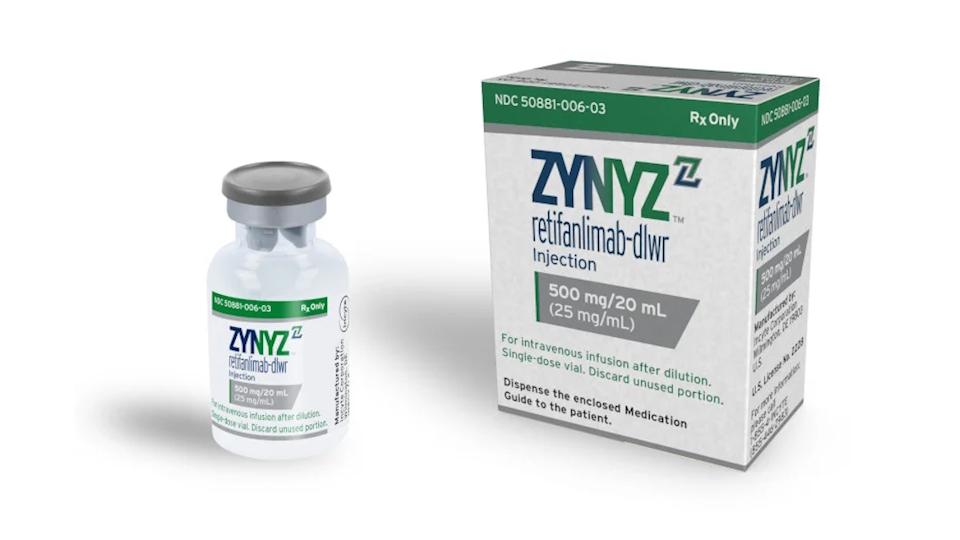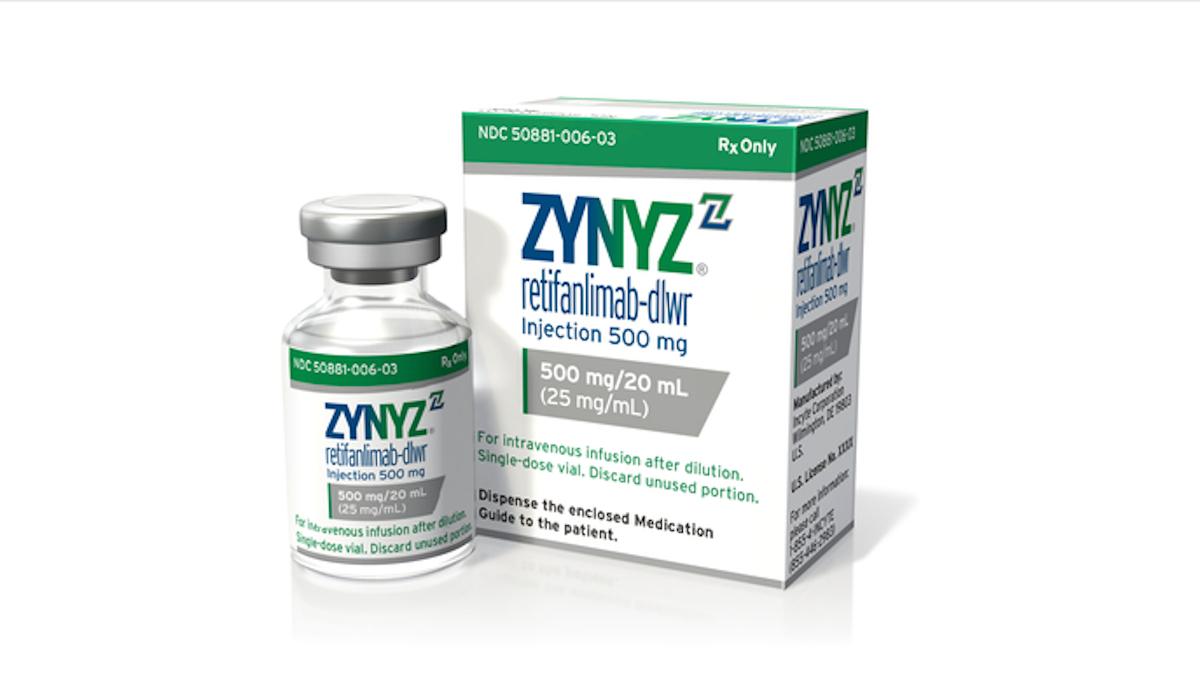ESMO: Incyte's PD-1 treads new ground in anal cancer

Incyte's first attempt to get FDA approval for its PD-1 inhibitor Zynyz for squamous cell carcinoma of the anal canal (SCAC) was knocked back by the FDA, but new data could get the programme back on track.
Zynyz (retifanlimab) is a late entrant to the PD-1/PD-L1 category, but picked up its first approval in the rare tumour Merkel cell carcinoma last year. Incyte had previously tried to get a green light for the drug as a second-line, post-chemotherapy treatment for SCAC, but that application was rejected in 2021.
Now, new data from the POD1UM-303 study reported at ESMO suggests the company could resurrect the SCAC indication and move Zynyz into the first-line setting to boot.
Given in combination with chemo, the Zynyz regimen reduced the risk of disease progression or death by 37% compared to chemo alone, and extended median progression-free survival (PFS) to 9.3 months from 7.4 months.
There was also a trend towards improved overall survival (OS), although that data is not yet mature, and it was seen even though the design of the study allowed for patients in the control arm to cross over to monotherapy with Zynyz on disease progression. Patients taking Zynyz saw a 30% improvement in OS compared to control, at 29.2 months versus 23 months.
The data led to claims that Zynyz plus chemo should be the new standard of cancer for SCAC as POD1UM-303 marks the first time that a checkpoint inhibitor has shown activity in frontline SCAC in a phase 3 trial.
SCAC is generally linked to human papillomavirus (HPV) infection and is fairly rare, with around 10,000 cases a year diagnosed in Europe and the US, although its incidence has been rising in some countries. There has been a big increase in cases among women in the last decade.
Treatment advances have been few and far between, with chemotherapy and radiotherapy the main options, so Zynyz could provide a much-needed new option for patients.
Incyte thinks the PFS data could be sufficient on its own to support regulatory approval and – while it does not see Zynyz as a major revenue driver – it does expect the drug to play a key role in supporting the development of other drugs in its cancer pipeline.
CDK2 drug shows promise
Those include potential first-in-class CDK2 inhibitor INCB123667, which showed activity against a range of solid tumours with biomarkers that suggest they are driven by CDK2 – including ovarian, endometrial, breast, and gastrointestinal cancers – in a phase 1b study reported at ESMO.
Incyte is highlighting the ovarian cancer cohort of 37 evaluable patients, which saw an objective response rate (ORR) of 24% (nine patients) including two complete responses, and intends to move ahead with a phase 3 programme that is due to start in 2025.












